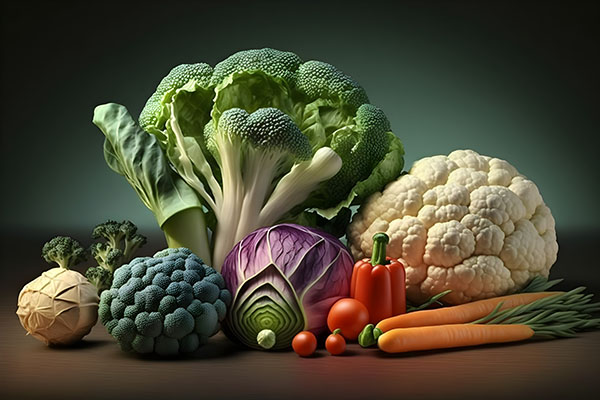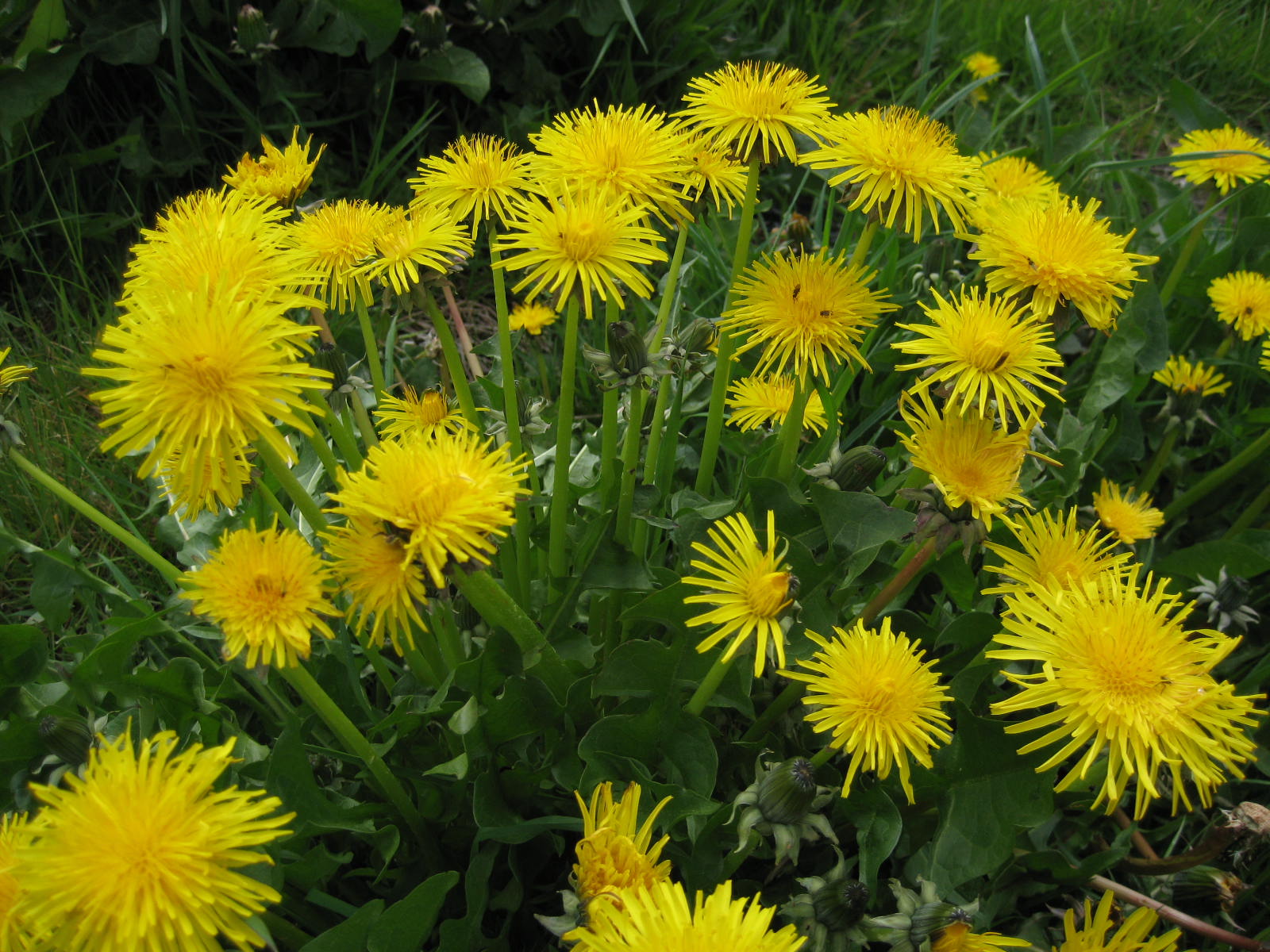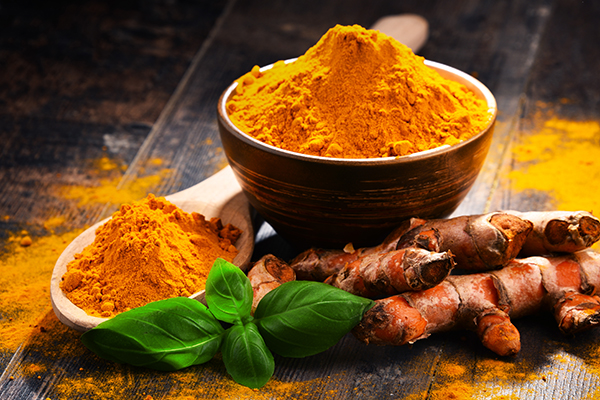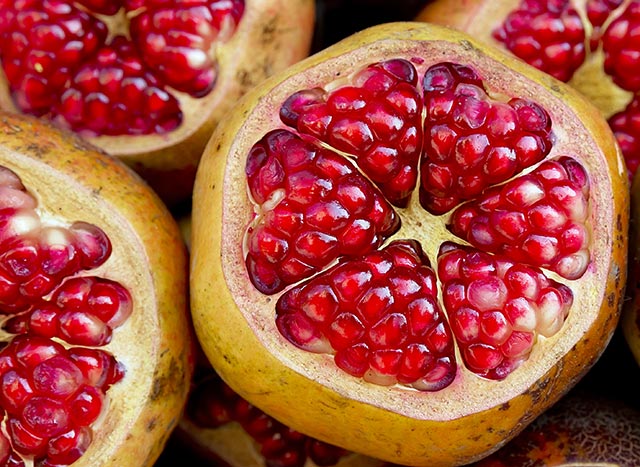Alfalfa sprouts: A small superfood that packs a hefty nutritional punch
07/01/2025 / By Ava Grace
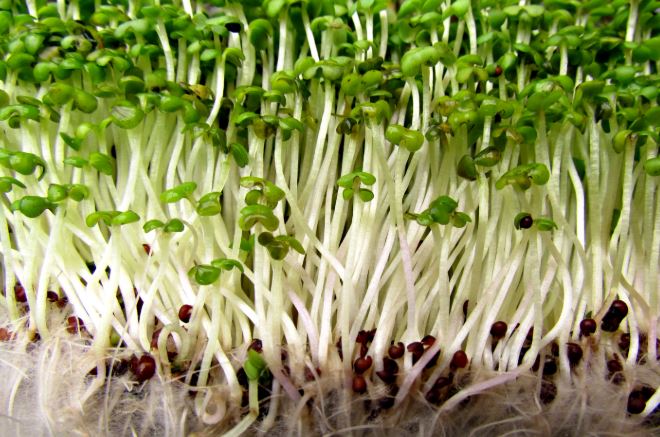
- Alfalfa sprouts (Medicago sativa) are a superfood rich in vitamins (A, C, E and K), minerals (calcium, potassium, iron and magnesium), phytoestrogens, antioxidants and chlorophyll, offering numerous health benefits.
- Alfalfa sprouts can support heart health by lowering cholesterol, aids digestion with their high fiber content, balances hormones through phytoestrogens, boosts immunity with antioxidants, and detoxifies the body with chlorophyll.
- Cultivated since ancient times, alfalfa has been used in herbal medicine to treat ailments like arthritis, joint pain and hormonal imbalances. It is valued in Ayurvedic and Traditional Chinese Medicine for its anti-inflammatory properties.
- Alfalfa sprouts are a versatile ingredient in dishes like salads, smoothies, teas and stir-fries.
- Modern studies suggest alfalfa sprouts may have anticancer properties and other therapeutic benefits, reinforcing its potential as a natural remedy and superfood for overall wellness.
Alfalfa sprouts (Medicago sativa) are a powerhouse of nutrition and a versatile culinary ingredient. Known as lucerne in many parts of the world, the alfalfa plant has been cultivated for centuries as a forage crop for livestock. But its benefits, particularly when consumed as sprouts, extend far beyond the barnyard.
Alfalfa sprouts are increasingly being recognized as a superfood for humans, offering a wealth of vitamins, minerals and bioactive compounds that can help prevent and even reverse certain health conditions. From its vibrant green leaves to its delicate purple flowers, alfalfa is a plant that deserves a closer look for its potential to enhance wellness.
Alfalfa’s name derives from the Arabic phrase al-fasfasa, meaning “father of all foods,” a fitting title for a plant so rich in nutrients. It has been cultivated since ancient times, with records of its use dating back to the Persian Empire.
Over the centuries, it has earned a variety of names, including lucerne (commonly used in Europe, Australia and South Africa), buffalo herb and purple medic. Its scientific name, M. sativa, reflects its Mediterranean origins and its status as a cultivated crop. (Related: Alfalfa as human food: A rich source of nutrients, it is consumed as a tea, herb, supplement and now as flour.)
Alfalfa is a visually striking plant, with clusters of small, trifoliate leaves and delicate purple or blue flowers that bloom in the summer. Its leaves are a vibrant green while its seeds are tiny, yellow-brown and kidney-shaped. When consumed, alfalfa has a mild, slightly grassy flavor with a hint of nuttiness, making it a versatile addition to a variety of dishes. Its subtle taste allows it to blend seamlessly into salads, smoothies and other recipes without overpowering other ingredients.
Nutritional profile and health benefits
Alfalfa sprouts are packed with vitamins A, C, E and K, as well as minerals like calcium, potassium, iron and magnesium. They also contain phytoestrogens, antioxidants and chlorophyll that contribute to their health-supporting properties.
Here are some of the key health benefits associated with alfalfa sprouts:
- Supports heart health: Alfalfa is rich in saponins, compounds that can help lower cholesterol levels by binding to cholesterol molecules and preventing their absorption in the gut.
- Aids digestion: The fiber content in alfalfa sprouts promotes healthy digestion and can alleviate symptoms of constipation. Additionally, their natural enzymes may help break down food more efficiently, reducing bloating and discomfort.
- Balances hormones: The phytoestrogens in alfalfa sprouts can help regulate hormonal imbalances, making them particularly beneficial for women experiencing menopause symptoms such as hot flashes and mood swings.
- Boosts immunity: Alfalfa sprouts’ high vitamin C and antioxidant content helps strengthen the immune system, protecting the body against infections and chronic diseases.
- Detoxifies the body: Chlorophyll, the pigment that gives alfalfa its vibrant green color, is known for its detoxifying properties. This compound helps cleanse the liver and bloodstream, promoting overall wellness.
Alfalfa as a healing herb
Traditionally, alfalfa is used in herbal medicine to treat a variety of ailments. Its leaves and sprouts are often consumed raw or dried, while its seeds can be ground into a powder or used to make tea.
Alfalfa tea, in particular, is a popular remedy for arthritis and joint pain due to its anti-inflammatory properties. The plant’s diuretic effects also make it useful for reducing water retention and supporting kidney health.
In Ayurvedic and Traditional Chinese Medicine, alfalfa is valued for its ability to cool the body and reduce inflammation. It is often recommended for individuals with conditions like rheumatoid arthritis, gout and skin disorders such as eczema.
One anecdote from the early 20th century tells of a farmer who credited alfalfa with restoring his health after years of fatigue and digestive issues. He began consuming alfalfa sprouts daily and noticed a significant improvement in his energy levels and overall well-being. Today, alfalfa sprouts are a staple in health food stores and are often added to sandwiches, wraps and salads because of their crunchy texture and nutritional benefits.
Modern research continues to explore alfalfa’s potential. Studies have shown that its bioactive compounds may have anticancer properties that could prevent the growth of certain types of tumors. While more research is needed, these findings highlight the plant’s promise as a natural remedy.
Culinary uses and recipe ideas
Alfalfa’s mild flavor and nutritional benefits make it a popular ingredient in a variety of dishes. Here are some recipe ideas that incorporate alfalfa sprouts:
- Alfalfa sprout and avocado toast: A simple yet nutritious breakfast option, featuring whole-grain toast, mashed avocado and a handful of fresh alfalfa sprouts.
- Superfood green smoothie: Blend alfalfa sprouts with spinach, banana, almond milk and a touch of honey for a refreshing and nutrient-dense drink.
- Alfalfa and quinoa salad: Combine cooked quinoa, cherry tomatoes, cucumber and alfalfa sprouts, dress with lemon juice and olive oil.
- Alfalfa tea: Steep dried alfalfa leaves in hot water for five to 10 minutes to create a soothing herbal tea.
- Stir-fried alfalfa greens: Sauté alfalfa greens with garlic, ginger and a splash of soy sauce for a quick and healthy side dish.
Alfalfa is more than just a forage crop; it’s a superfood with a long history of use in traditional medicine. Alfalfa’s ability to support heart health, aid digestion, balance hormones and detoxify the body makes it a valuable addition to any wellness routine. Whether consumed as sprouts, tea or greens, alfalfa offers a simple and effective way to boost overall health.
This story is not medical advice and is not intended to treat or cure any disease. Always consult with a qualified naturopathic physician for personalized advice about your specific health situation or concern.
For more fascinating insights into superfoods and their natural wonders, visit NaturalNews.com. It’s a treasure trove of articles that will deepen your understanding of the healing power of food.
If you’re into cutting-edge technology with a health twist, try Brighteon.ai. Created by Mike Adams, the Health Ranger, this AI model is a free download that you can run on your own device. It’s all about sharing knowledge freely and bypassing the filters of censorship.
And if you’re looking for a place to openly discuss everything from nutrition to natural remedies without any holds barred, Brighteon.com is your go-to spot. Don’t forget to check out their free speech social media platforms, Brighteon.IO and Brighteon.social, where the conversation is always lively and uncensored.
Watch this video about the health benefits of alfalfa sprouts.
This video is from the SeedsforSprouting.com channel on Brighteon.com.
More related stories:
GM alfalfa slowly invades farmers’ fields, threatening livelihoods and the environment.
Improving your health with alfalfa sprouts.
Alfalfa proven to lower cholesterol and shows promise in healing lupus.
Sources include:
Submit a correction >>
Tagged Under:
alfalfa, alfalfa sprouts, food cures, food is medicine, Fresh, functional food, healing, healing food, herbal medicine, Medicago sativa, natural cures, natural health, natural medicine, remedies, veggie
This article may contain statements that reflect the opinion of the author




